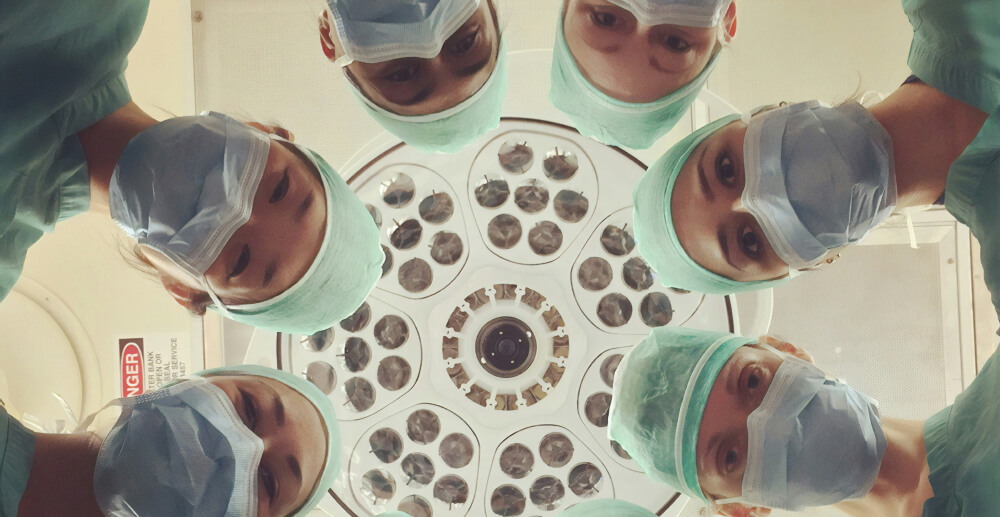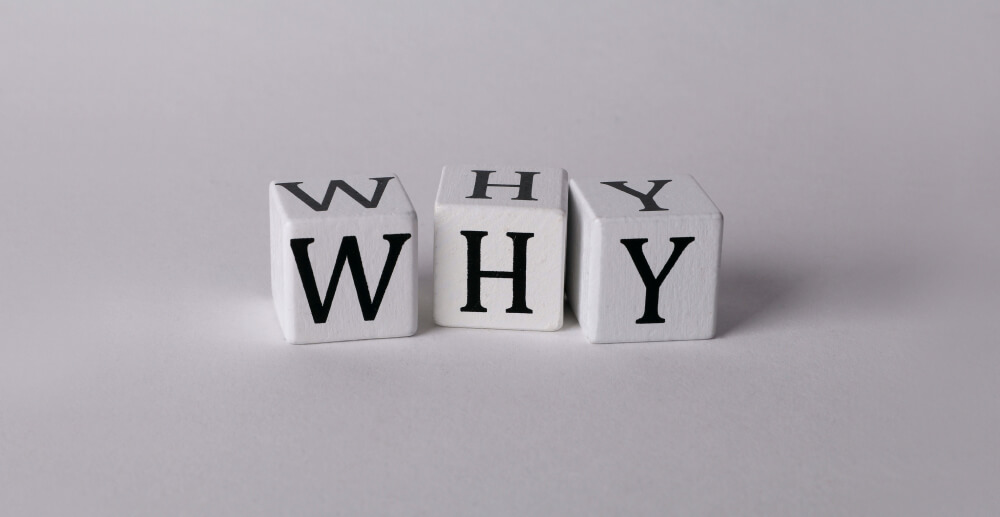Experiencing an overdose can be dangerous and traumatic, but it also presents an opportunity for recovery and change.
More people are dying from overdose than guns or car crashes. It can be hard to recognize that danger when you’re using. Maybe survival isn’t at the top of your priority list right now—addiction has a way of making everything seem less important than getting and using drugs. But if you’re breathing, there’s some part of you that wants to stay alive, no matter how bad your addiction is. A near-death experience like an overdose can strengthen that will to live.
When you’re submerged in addiction, it can be impossible to imagine a way out of it.
Addiction becomes your way of life. It’s the very air you breathe. But you can recover. And as long as you survive the experience, you can recover after overdose. It can be a wake-up call to just how serious your addiction has become. For some, overdose can be the big reveal in which friends and family finally realize that you are very sick. It might be your own big reveal to yourself, in which you come to understand how sick you are. Maybe this time you wake up in the hospital, whereas before you’ve been able to sleep things off. Maybe you have a moment of clarity that there are people here that might lose you.
We’ve shared before about naloxone (brand name Narcan). Narcan is the opioid antidote administered during an overdose to block and reverse the effects of opioids in the brain. Naloxone saves lives. But let’s talk about what happens after Narcan or naloxone is used, or after you’ve received other treatment for an overdose. It can feel like a time of crisis. And it is. But opioid use disorder itself is a series of crises all the time—a mad hamster wheel of scoring, avoiding withdrawal, and trying to stay awake. Overdose shines a bright spotlight on how unsustainable addiction (and the behavior that goes along with it) really is. Something’s gotta give. And the thing that gives will be you, your life, or your addiction. This moment of crisis, this new lease on life, can be a chance to embrace your fear and transform it into the motivation to change.
I know you can get into recovery after an overdose, because I did it.
I got sober fifteen years ago. The drugs were different then, but I still managed to overdose. It happened more than once. One time my poor then-boyfriend climbed up to my second-story apartment and crawled in through my window to see if I was okay when I hadn’t been responding to his messages. Spoiler: I wasn’t okay.
Perhaps the most disorienting times for me were when I was released from the hospital or left behind after the ambulance or firefighters had determined I was okay. I would sit there lost, with my arms sore and sticky from IVs and little direction on what to do next. I’d be left with a bruised sternum from where emergency personnel had tried to revive me. My concerned parents, who lived in another state, would try to find out if this latest crisis was worth making the trip, when this had happened so many times before. Medically and physically, I was present and alive. My heart was pumping and I was breathing, though my nose was dry and sore from oxygen tubes. My body stood on the ground just like it had before I overdosed. Mentally, though … I was lost.
So what should you do after overdose? How can you hold onto the crisis, and seize it as a moment of transformation?
1. Seize the moment.
If overdose places you in the medical system, tell them you want help. Ask for resources. If you’re still going to use, talk to them about harm reduction and suggestions for safer use. If you are ready to quit, ask for a referral. Don’t put this off! As the days pass and you gain distance from your overdose, you’ll struggle more with physical withdrawal. Using will probably start to sound better as you look for an escape from your withdrawal symptoms, and the unpleasant overdose itself will be a fading memory compared to your intense cravings. So take action while it’s all fresh in your mind and while medical professionals are in front of you. They aren’t going to expect you to want help. Speak up for yourself, and be your own advocate.
2. Talk to your loved ones.
If your friends and family didn’t know you had a problem, this is the time to have a conversation with them. If you don’t feel comfortable talking with certain members of your family, try reaching out to a trusted friend about what is going on. Overdose is physically and mentally exhausting, so you’ll need support. Please don’t just take an Uber or taxi home from the hospital alone. Call someone, even if it’s just your local NA hotline. As people with substance use disorder, it’s hard to ask for help. We live in a world of shame and secrets. A first step to getting better is letting people in. Sometimes, overdose forces you to do just that.
3. Be prepared for physical withdrawal.
Naloxone by itself isn’t a solution to overdose. It will wear off, and if the opioids are still in your body, that can create the risk of re-overdose. Afterward, it will cause serious withdrawal, which can make you want to use more. But if you do, the naloxone in your system might prevent you from getting high. If you’ve been treated with Narcan (generic name naloxone) and haven’t received emergency care, get medical care and get advice on how to detox safely. A healthcare provider can also tell you what to expect from withdrawal and give you advice on how to get through it.
4. Look into medication-assisted treatment.
Studies show that medication-assisted intervention in the emergency room, like buprenorphine, improve treatment outcomes. Hopefully, more ERs take heed of these findings. But even if they don’t, there are providers that can prescribe medication like Suboxone (generic name buprenorphine/naloxone), which can help you manage your cravings and avoid withdrawal, without inpatient care. Some people think that you have to check in to an expensive 30-day treatment center and put your life on hold to get better, but there are other treatment options, and medication-assisted treatment is one of them.
5. Celebrate the little joys of life.
Regardless of what you believe happens after death, surviving overdose allows you to appreciate the joys and pleasures of this world. Cultivating that sort of gratitude is a big part of what recovery and appreciating the world even when sober are about. If you were dead, you wouldn’t see your kids, parents, or pets again. Forget about the next season of Stranger Things. Your favorite ice cream. Jack in the Box tacos. Autumn leaves crunching under your feet. Cuddling. Your favorite song, played loudly while you’re driving on the freeway. Try to remember all the little delights of being alive, especially in the difficult times that lay ahead in early sobriety.
You almost didn’t make it. But you did survive. So now is a perfect time to treasure the things in your life that bring you even the tiniest bit of joy.
6. Find a community to connect with, and share your story.
It doesn’t matter what sort of group floats your boat. Here at Workit Health, we have online recovery groups and private communities for our members, but there are a lot of options outside of Workit, too. Many folks find their people in Narcotics Anonymous or Alcoholics Anonymous. If 12-step groups aren’t your thing, there are other support groups and counselors. There is Yoga of 12 Step Recovery. Refuge Recovery is a Buddhist-focused addiction group. If you’re not ready to dive into the recovery world but need to find some people whose idea of fun isn’t shooting up, check out meetup.com.
While you’re seeking out your people, steer clear of your dealer and the friends you used with. Connection is healing, but your old, drug-related connections probably aren’t.
Finally, check out Revived & Renewed, 5 powerful stories of recovery after overdose:
If you keep using or are around people who do, be prepared for overdose.
Carry naloxone at all times, and make sure that you and your friends know how to use it. Be aware of these signs & symptoms of an overdose:
- Awake, but cannot speak.
- Slow heartbeat and pulse.
- Slow breathing or not breathing.
- Blue lips and/or fingernails.
- Gurgling, snoring, or raspy breathing.
- Choking sounds.
- Passing out.
- Vomiting.
- Pale face.
What increases the risk of an overdose?
- Using after a period of abstinence (such as during incarceration, hospitalization, or substance use disorder treatment). Periods of abstinence can lower tolerance, so that the dose that you used to use is too much.
- Rotating between different types of opioids
- Mixing opioids with alcohol or medications (such as benzodiazepines or anti-depressants)
- Health-related problems: emphysema, asthma, sleep apnea, COPD, heavy smoking, kidney issues
If you ever suspect an overdose has occurred, the first thing you need to do is call 911. Then, administer Narcan if available.




